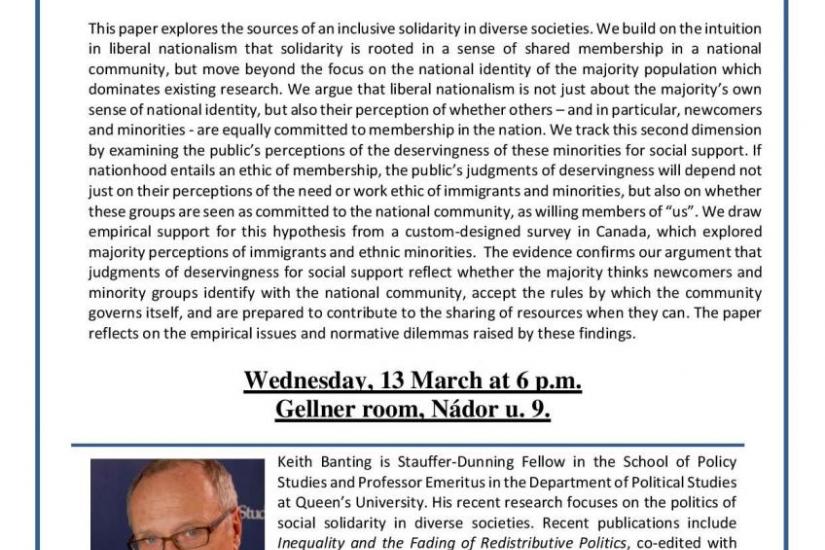
This paper explores the sources of an inclusive solidarity in diverse societies. We build on the intuition in liberal nationalism that solidarity is rooted in a sense of shared membership in a national community, but move beyond the focus on the national identity of the majority population which dominates existing research. We argue that liberal nationalism is not just about the majority’s own sense of national identity, but also their perception of whether others – and in particular, newcomers and minorities - are equally committed to membership in the nation. We track this second dimension by examining the public’s perceptions of the deservingness of these minorities for social support. If nationhood entails an ethic of membership, the public’s judgments of deservingness will depend not just on their perceptions of the need or work ethic of immigrants and minorities, but also on whether these groups are seen as committed to the national community, as willing members of “us”. We draw empirical support for this hypothesis from a custom-designed survey in Canada, which explored majority perceptions of immigrants and ethnic minorities. The evidence confirms our argument that judgments of deservingness for social support reflect whether the majority thinks newcomers and minority groups identify with the national community, accept the rules by which the community governs itself, and are prepared to contribute to the sharing of resources when they can. The paper reflects on the empirical issues and normative dilemmas raised by these findings.